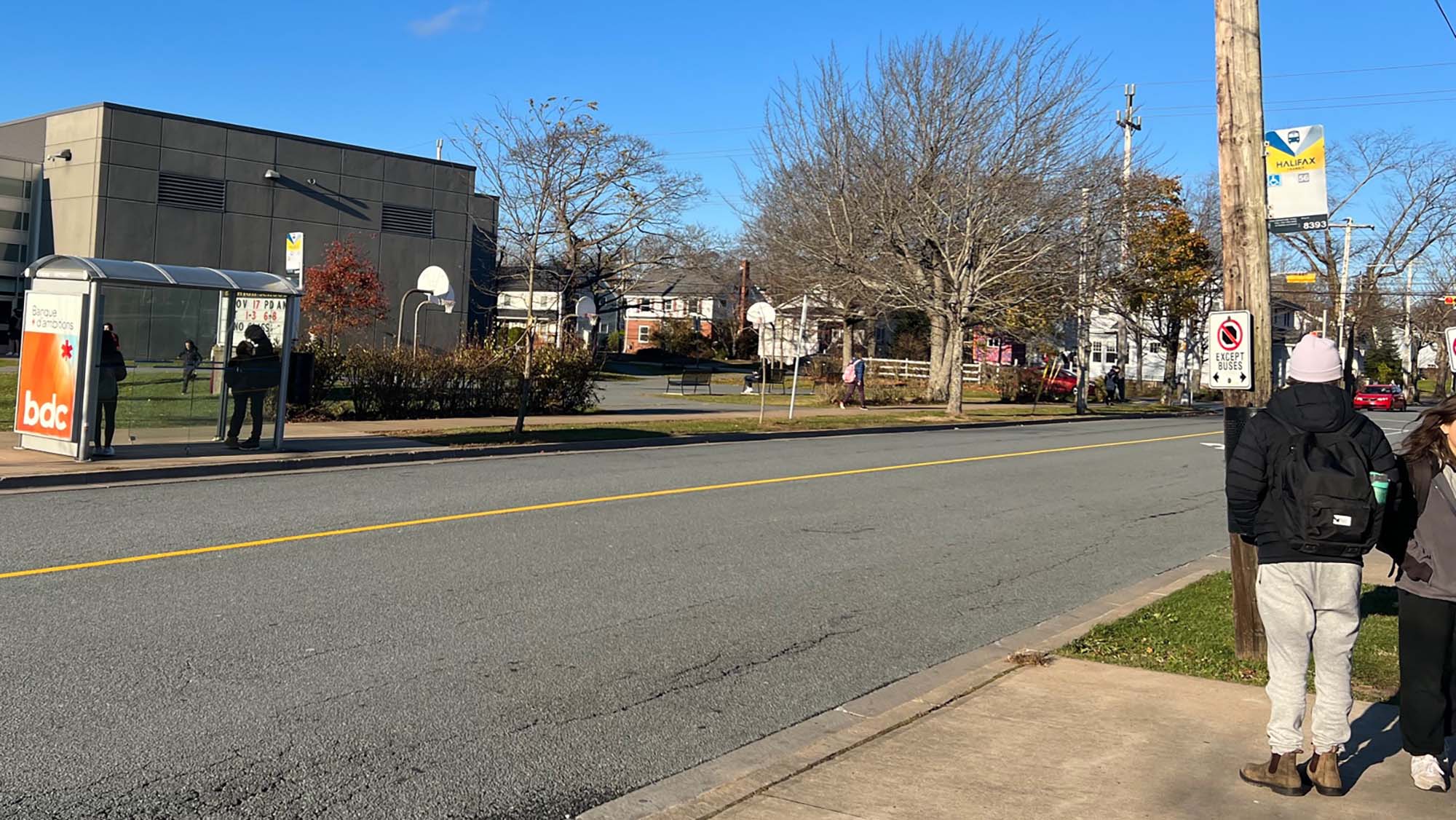More students in Dartmouth to get free transit passes
Council votes to expand pilot program after testing in high schools

caption
Students wait for the bus across the street from Dartmouth High School.Students at six junior high schools in Dartmouth will soon be eligible for free transit passes.
Halifax regional council unanimously voted on Tuesday to expand the student transit pass pilot program to phase two as of January.
Of the 2,253 students across the six schools, only those older than 12 will receive passes, since children 12 and under can already ride for free on Halifax Transit.
Council accepted recommendations from municipal staff that phase two begin in January.
The first phase of the program included two schools, Dartmouth and Woodlawn High Schools, and two high schools under Conseil Scolaire Acadien Provincial (CSAP) since fall 2021.
Coun. Tony Mancini backed expanding the program, and said in an interview that many parents and teachers in his district, which includes Woodlawn High School, have voiced support, and cited how it gets students into the habit of taking the bus.
“Hopefully they’ll be lifelong users of transit,” Mancini said in an interview.
The second phase includes a $200,000 contribution from the Halifax Regional Centre for Education. An agreement on cost sharing for the program between HRCE and the municipality will be completed.
The six junior high schools were chosen because they are feeder schools for the two high schools from phase one. They are:
- Bicentennial Academy
- Dartmouth South Academy
- John Martin Junior High
- Caledonia Junior High
- Ellenvale Junior High
- Eric Graves Memorial Junior High
Change in program’s direction
Phase two was originally expanding to more high schools, but after consultation from HRCE, staff recommended in their report that it instead include junior high schools. It may be “more beneficial to evaluate the impact of the program” since ridership often overlaps between nearby high schools and junior high schools.
The staff report said HRCE would consider discontinuing certain school bus routes in favour of funding students taking transit if uptake in phase two of the program is “substantial.”
A third and final phase in fall 2023 would include free transit passes for all high and junior high schools served by Halifax Transit.
“I’m hoping the pilot program expands to all schools… in the future after we do this pilot,” Mancini said.
The staff report included a survey by Halifax Transit at the start of the program, which said 30.9 per cent of students at the four high schools reported using transit, just over half of whom said it was to get to school. In a June 2022 survey of students at Dartmouth and Woodlawn High Schools after the program began, 64 per cent of respondents said they took transit to school.
The staff report says the Dartmouth high schools in the first phase were chosen due to proximity to bus routes, but also for the ability of transit to “serve the schools without exceeding bus capacity numbers.”
Problems with transit ‘overloads’
Larger schools, such as Citadel High School, already have high transit ridership among students. Citadel does not use any school buses, which is causing issues of students crowding buses at peak dismissal times.
Coun. Waye Mason said in an interview that there are challenges any time a new discount for transit passes is added, and transit has to adjust capacity.
Mason said “what we’re seeing around Citadel especially is a good indicator of the challenges we’ll have” in the program, but still supports it.
Patricia Hughes, Halifax Transit's director of planning and public engagement, spoke to council Tuesday on why certain schools already with high student ridership, such as Citadel and Halifax West, were not included in the program.
“Originally, we were quite concerned operationally with overloads, and with one dismissal time and with a lot of students trying to board a single bus,” Hughes said.
Coun. Kathryn Morse said she wants to see the program quickly expanded to more high schools that have “already demonstrated a need, not just excluding them because the demand is so high that they would overload the system.”
Hughes pointed out that the program also allows students to take transit for reasons besides school, which could support access to part-time jobs and recreational activities.
About the author
Sam Farley
Sam is a fourth-year King's journalism student from Boston.
